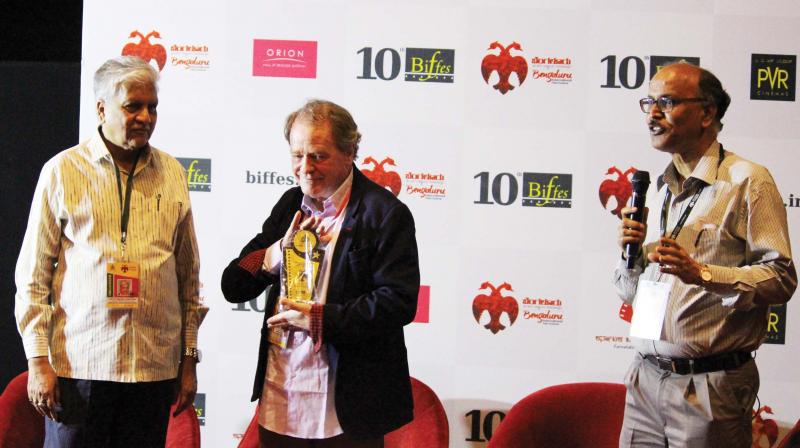Bridge cinemas the way forward: Karnataka movie makers
Bridge movies are on the rise both internationally and in India.

BENGALURU: Bridge cinemas are popular all over the world and movie makers in Karnataka should focus on making such films, said Rajendra Singh Babu, film producer and director of Bangalore International Film Festival. At an interactive session here on Tuesday, Babu said bridge cinemas are neither fully commercial nor do they fall in the parallel cinema bracket. They need not be blockbusters or huge box office hits, but they are movies built around socially and culturally relevant themes, with entertainment quotient. Kannada film director N.R. Nanjunde Gowda said bridge movies are beginning to happen in the state. The recent movie, Hebbettu Ramakka could be an example. The movie, starring Tata in the protagonist’s role, narrates the story of a woman politician, who is almost illiterate with no administrative capabilities, but handles the character extremely well.
“Let our film makers develop simple, locally relevant realistic topics. Audiences should be able to relate to these story lines. They should feel it is their story and their life,”’ Gowda said.
Bridge movies are on the rise both internationally and in India. The Lebanese movie The Insult is a classic example. It already ran four shows houseful and still many people are asking for its three more repeats.
Commenting the directorial efforts of Sumitra Bhave, Rajendra Singh Babu said Marathi film industry has been doing very well in terms of bridge movies. The storyline is the star of such movies and not the heroine or hero. “Malayalam and Tamil have been successful in making such movies, and now the Marathi film industry too seems to have understood the potential of such movies. In Karnataka, we have a treasure of local stories and literature, many of those could be made into popular movies,’’ Babu added. The Karnataka Chalanachitra Academy has decided to offer Rs 25 lakh for eight select Bridge Films a year. These films will be based Kannada stories, literature, highlighting local culture. The academy has created a repository of 100 stories filmable (Jenu Goodu) of which eight will be chosen for cash incentives every year.

